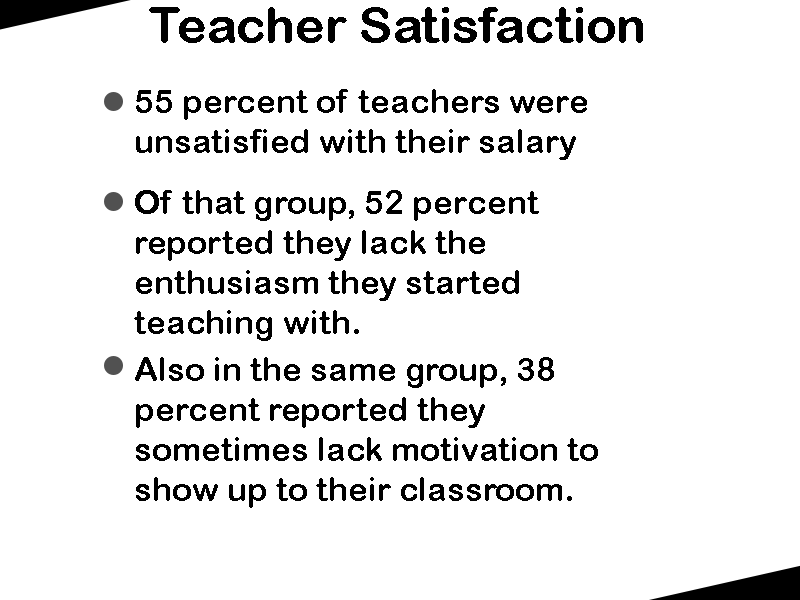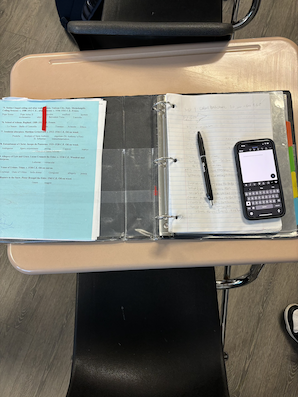By Amelia McDonough
According to a survey conducted by the U.S. Department of Education as of June 2022, 88 percent of public schools reported that teacher and staff burnout is a major concern for them. Survey data also reports 62 percent of public schools are concerned about their abilities to fill vacancies. There is no question that the teacher shortage is dominating the school systems in an extreme way and presenting serious issues. The most important thing to address is why so many teachers are getting fed up and refusing to continue working under the current state of the education system.
One of the leading issues facing teachers is not being paid properly. While unsatisfactory pay isn’t a new issue and teachers have faced it for years, a lot of educators are refusing to put up with it any longer. According to a global survey conducted by the Varkey Foundation, a global charity that supports teachers, Americans think that U.S. teachers are underpaid by an average of $7,500 a year. Teachers cannot afford to be underpaid when working the hours they do. Many people fail to realize that even when the school day ends teachers are still on the job tending to students whether that be after school tutoring, answering emails, grading tests, etc. Educator at Ponte Vedra High School, Jennifer Lee, agreed this is one of the most important issues, “The demand on teachers continues to grow and the pay has not kept up. Younger generations are looking at the job and saying I’m not doing that.” Lee also mentioned, “The way we have taught for years has not changed. The job is the same it has been for years and younger generations are looking for more flexibility within their occupations, making this job not very appealing.” Part of this issue stems from the fact that many are working to provide for not only themselves but their families and they are no longer willing to let the issue be neglected.
Another recent matter that has been impacting teachers, along with the whole education system are new policies and laws being passed about what teachers can and cannot speak or teach about. Many of these laws pertain to conversations that discuss gender, history, race, and sexuality. According to vox.com, “The law, which is already in effect, has sparked confusion and distress among educators, some of whom say it is so broad and the language so ambiguous, they fear they might face consequences” This confusion and distress has caused some teachers to ultimately leave their jobs in order to avoid further conflicts or consequences.
A third event that has had lasting effects of the teacher shortage and education system is the COVID-19 pandemic. When teachers were expected to make the transition to remote learning when the pandemic first struck, it only amplified their duties. Many teachers struggled to keep up with the demands of online learning and could not handle that some boundaries were destroyed by this new lifestyle they were urged to adapt to. This stress eventually lead a lot of teachers to their breaking point.
This major issue of a lack of teachers will inescapably lead to great declines in the standards of the educational system. The effects that this shortage of educators will have on students will be detrimental as expected and without the teachers that uphold this system these effects will be unavoidable. Although the number of teachers is declining, the number of students will not do the same. Therefore, without solutions and changes to these issues facing the education system and the teachers within it this downward spiral will only continue.





